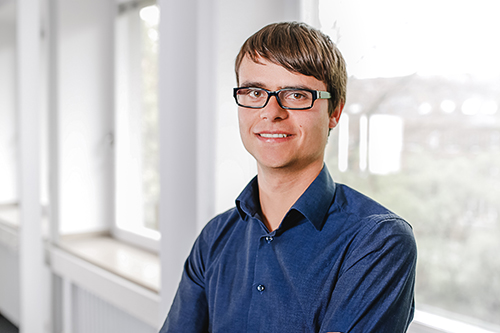
Dr. Lars-Ole Wehden
Department of Communication
Room: E 219
Bispinghof 9-14
D-48143 Münster
Phone.: +49 251-83-23009
lars-ole.wehden@uni-muenster.de
Consultation-hours
by individual arrangement via mail

Department of Communication
Room: E 219
Bispinghof 9-14
D-48143 Münster
Phone.: +49 251-83-23009
lars-ole.wehden@uni-muenster.de
by individual arrangement via mail
2010-2015: Studies of Communication Science and Political Science at the Free University of Berlin and the University of Helsinki, M.A. degree in Media and Political Communication.
2012-2015: Student Assistant at the researchgroup Communication Theory and Media Effects Research (Prof. Dr. Barbara Pfetsch)
Oct. 2015-Aug. 2016: Research Associate at FU Berlin, partly in the third-party funded project of the German Chancellery “Scientific analysis of the citizen dialogue on quality of life – Gut leben in Deutschland” (Prof. Dr. Annie Waldherr).
Oct. 2016-Mar. 2022: Research Associate at the Department of Communication at the University of Münster in the “Online-Communication” research group (Prof. Dr. Thorsten Quandt). Work on a dissertation project titled “Journalistic gatekeepers in social media: An empirical analysis of news dissemination by journalists based on event and article characteristics”. Furthermore, part of the research team of the “Virtual Reality and GameLab”.
Since Apr. 2022: Research Associate at the Department of Communication at the University of Münster in the “Journalism Studies” research group (Prof. Dr. Nina Springer).
Member of the European Communication Research and Education Association (ECREA)
Summer term 2024 – summer term 2025: Program Coordinator for the Master programs M.A. Communication Studies and M.A. Strategic Communication (on parental leave)
2018-2020: Member of the comission for research and young academics at the faculty 06 at the University of Münster
Reviewer for scientific associations like the ICA
Reviewer for international scientific journals, i.e.: Media and Communication; SC|M- Studies in Communication and Media
. (). Journalistische Gatekeeper in den Sozialen Medien: Eine empirische Analyse der Nachrichtenverbreitung durch Journalist*innen anhand von Ereignis- und Meldungsmerkmalen. Wiesbaden: Springer Fachmedien Wiesbaden. doi: 10.1007/978-3-658-40257-0.
From a normative perspective, the reception of a diverse news diet leads to a number of desirable effects for society. Lately, social media has emerged as an important way to access journalistic news. For some people, they are now the most important or even the only source of news. Therefore, it is important to assess whether the news overview that is presented there is as diverse and well-balanced as the one that is presented in other news sources. Some scholars voice concerns, that in social media especially soft news content may be dominant. This could result in less shared topics that can be discussed in society – which would most likely have negative consequences.
For that reason, it is relevant to find out which criteria influence the selection of news that is executed by various gatekeeping actors within social media and how this might influence the composition of the news overview that is presented there. Journalistic actors still serve as powerful gatekeepers within social media, next to other actors from society and members of the audience. However, the selection criteria that lead journalists when deciding which articles they should present on the social media pages of their outlets has only been analyzed sporadically. Therefore, this thesis aims to identify event and message criteria (e.g. news factors, topics, formal aspects) that influence journalistic news selection processes in social media. Furthermore, the variety of the resulting journalistic news overview in social media will be compared to its counterpart on journalistic news websites. Finally, it is also the aim of this study to look for criteria that influence the overall sharing and interaction numbers that journalistic articles receive in social media. The executed research design combines qualitative interviews with experts from journalistic practice (N = 27) with a content analysis in the form of an input-output-comparison of journalistic news articles (N = 1 258).
The results show, that the news overview that is presented by journalistic actors in social media is almost as diverse as the one on the websites. However, some topics receive fewer social media coverage (i.e. foreign politics, economy). At the entrance gate of social media, news factors seem to exhibit only a small additional influence. Rather, formal aspects are more important here. This seems to hint at an adoption of journalistic story important cues by the editors of the journalistic social media pages.
As part of the governmental strategy “Gut leben in Deutschland, was uns wichtig ist” more than 200 group discussions were conducted in the year of 2015. Moreover, citizens had the opportunity to send their ideas on quality of life to the government via an online form or a postcard. The scientific analysis of about 200 group discussion protocols, 2.500 online documents and 4.500 postcards was carried out by a team led by Prof. Barbara Pfetsch and Dr. Annie Waldherr in cooperation with the software engineering company CiD GmbH. The further team consisted of Peter Miltner, Sophia Ostner, Lars-Ole Wehden and Daniela Stoltenberg. The analysis consisted of qualitative and quantitative content analysis with the help of the text mining software Topic Analyst by CiD GmbH. The results have been documented in a scientific report and formed the base of the Report on Life Quality by the German Government (2016).